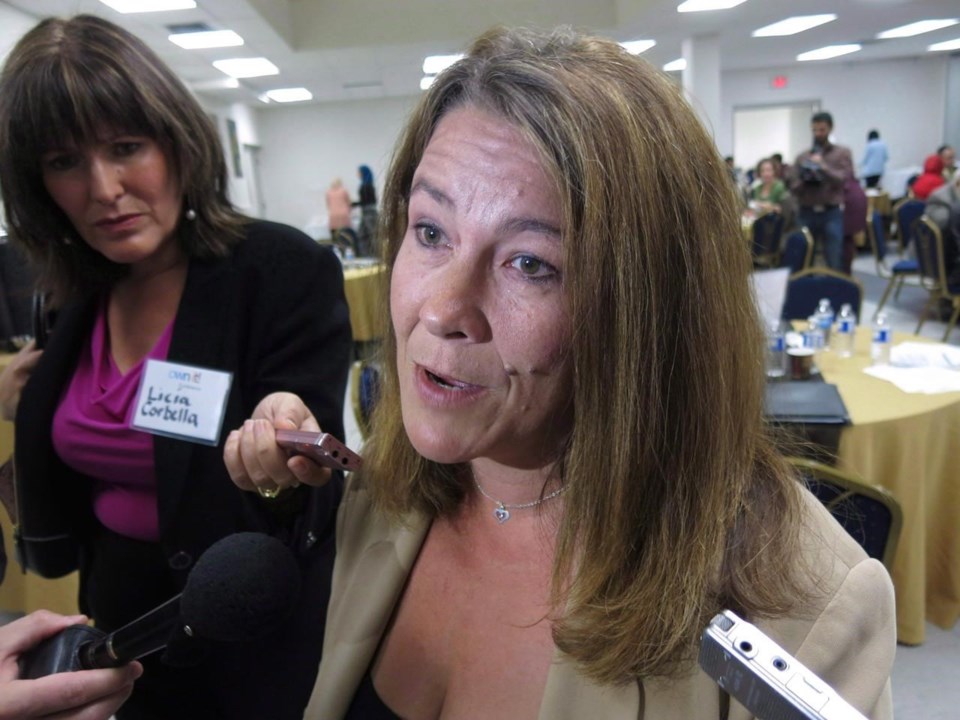CALGARY — An Alberta woman whose son was killed while fighting with Islamic extremists in Syria is worried anger over the conflict between Israel and Hamas could lead to an increase in radicalization.
Chris Boudreau says she expects extremist groups are going to seize on the conflict.
"That's what they use to engage — the anger, that burning desire on the inside," she said in a recent interview with The Canadian Press.
"Helplessness is a powerful thing. Fear is a powerful thing. And unfortunately, as human beings, emotions tend to prevail over logic."
Boudreau's son, 22-year-old Damian Clairmont, converted to Islam as a teen and died in heavy fighting in the city of Aleppo in 2014 as a member of the Islamic State militant group.
Boudreau, who now lives in France, has spoken out for years about the dangers of youth becoming isolated and radicalized.
"I think about him every day. It doesn't go away. He was very intelligent and empathetic and felt other people's pain and his biggest frustration was the political system itself," she said.
"That's what started it."
Boudreau said she worries rising anger makes young people more vulnerable.
"It's a free-for-all right now. If you look at the weakened state of everybody mentally, the resilience is not there and people are really struggling. So, it's a gold mine," she said.
"You can pick and choose (new recruits) right now because it's so easy to get people fired up and fuelled up and joining your cause."
On Oct. 7, Hamas and other militants launched a surprise attack in southern Israel that left about 1,200 people, mostly civilians, dead. Some 240 men, women and children were taken hostage.
Israel launched a swift and sustained retaliatory war in the Gaza Strip. The Health Ministry in the Hamas-run territory said as of Friday the death toll had surpassed 17,000, with more than 46,000 wounded. The ministry does not differentiate between civilian and combatant deaths, but said 70 per cent were women and children.
Amarnath Amarasingam, an assistant professor in religion and political studies at Queen’s University in Ontario, said anger is a legitimate response to what's happening and it's difficult to determine how to respond.
"I think this conflict in particular has a bizarre ability to short-circuit people's usual commitment to human rights," said Amarasingam, who has researched terrorism, radicalization and extremism.
"Hardliners on both sides tend to waffle, hedge and discount what 'their side' is doing in a way I've never seen them do with other conflicts."
He said there's been an uptick in hate speech and hate crimes on both sides.
"The Palestinian cause has always been a key component of the many grievances that jihadist groups discuss in their propaganda," he said.
"That part hasn't changed. But there's definitely an increase in the propaganda output by groups like ISIS and (al-Qaida) to try and use the most recent conflict to recruit."
Imam Syed Soharwardy, founder of Muslims Against Terrorism and the Islamic Supreme Council of Canada, has been counselling Muslim youth for years in order to combat radicalization.
He said the current situation is different than when the Islamic State group was attempting to lure disenfranchised youth several years ago.
Soharwardy said he has spent the past few weeks telling young people not to follow the path of violence and to express themselves in positive ways, such as writing letters to newspapers and contacting politicians.
"It is very hard to satisfy them that you need to control yourself. They listen to me, but I can read their faces that they are not satisfied with my answers," Soharwardy said.
"I have never seen our youth so angry this time, even after 9/11. It is worse than what ISIS used to do with the brainwashing. At least with ISIS they knew that these people were a bunch of thugs."
Soharwardy condemns the Hamas attack but said he's disappointed western and European leaders haven't criticized Israel's response strongly enough. He said anger from the younger generation is also directed at Muslim governments.
"Our Muslim youth are more angry at Muslim governments than the western governments. Even this time, Iran did not support Hamas as openly as they used to do. Pakistan did not speak at all … and that is a very dangerous thing."
Soharwardy said Canada-wide protests have been peaceful for the most part and they allow those who are angry to have an outlet.
"If they stop these rallies, it's going to put everything under the table or under the ground, which is very, very dangerous. This is very important they should blow off steam in this peaceful way."
This report by The Canadian Press was first published Dec. 10, 2023.
Bill Graveland, The Canadian Press



